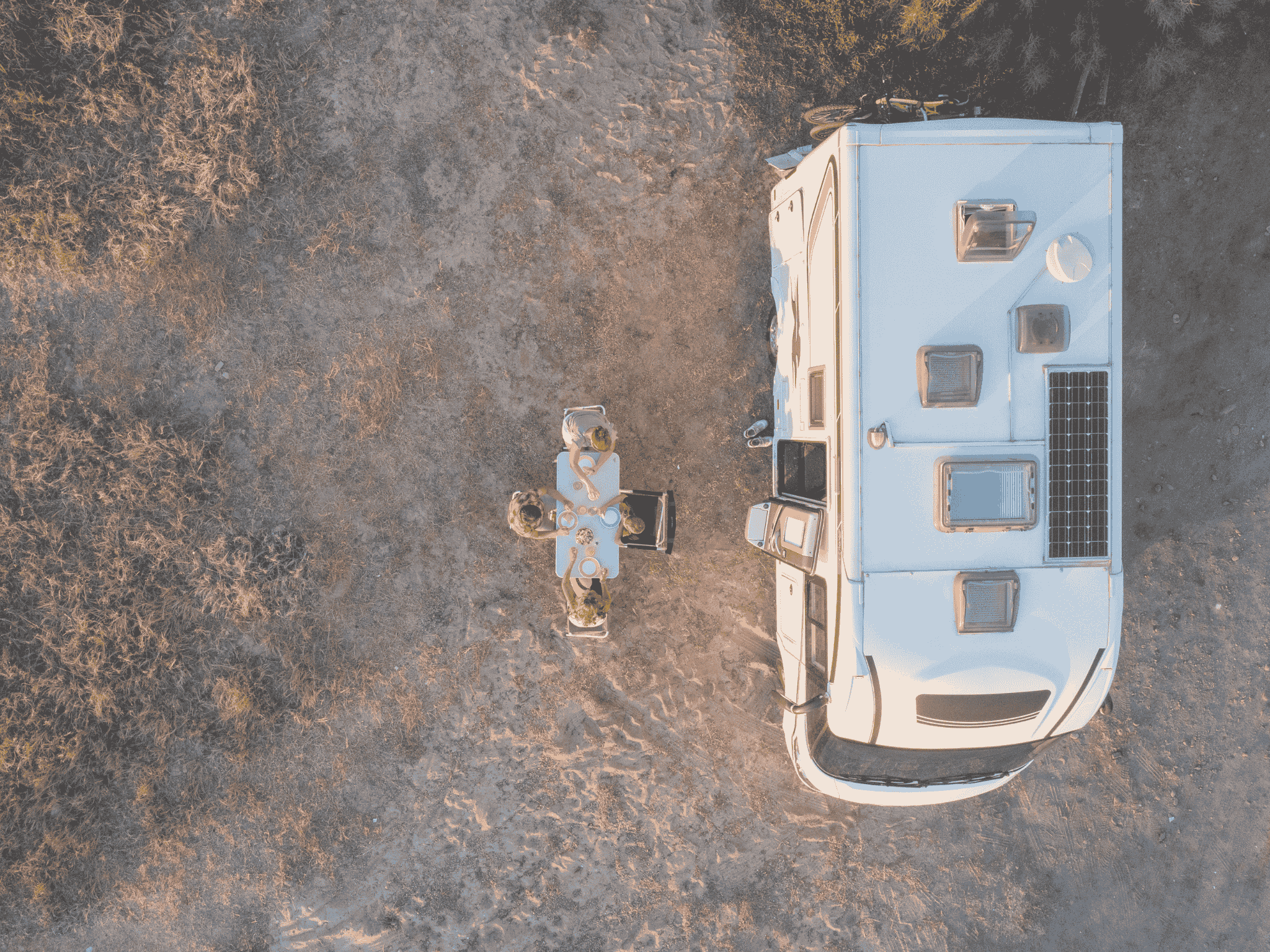Are you dreaming of hitting the open road in an RV and experiencing the freedom and adventure of mobile living? As exciting as it may be, your first RV trip can be daunting if you’re unprepared.
In this comprehensive guide, we’ll discuss the most frequent mistakes made by novice RV travelers and provide practical tips to ensure your maiden voyage is smooth sailing. Whether you’re planning a weekend getaway or a cross-country expedition, these insights will help you prepare for the unexpected, maximize your enjoyment, and create lasting memories.
So buckle up, future road warriors—it’s time to embark on your RV adventure with confidence!
Failing to Plan Properly
One of the most critical mistakes new RV enthusiasts make is underestimating the importance of thorough planning. While spontaneous travel is appealing, a lack of preparation can lead to stress, wasted time, and unexpected expenses.
As you prepare for your journey, consider stocking up on some flavored decaf coffee to enjoy relaxing mornings at the campsite without the caffeine jitters. These little comforts can make your RV feel like a home away from home.
Route Planning and Reservations
First-time RVers often assume they can easily find campgrounds or RV parks along their route. However, popular destinations can fill up quickly, especially during peak seasons—research and book campgrounds in advance to avoid disappointment, particularly for weekends and holidays.
Use RV-specific GPS or apps to plan your route, considering low bridges, weight restrictions, and steep grades. Factor in drive times, accounting for slower speeds when towing or driving a large RV and plan for frequent breaks to avoid fatigue.
Packing and Weight Distribution
Overpacking is a common issue for new RV travelers. Remember, every pound affects fuel efficiency and handling, so create a comprehensive packing list of essentials.
Weigh your RV before and after loading to ensure you’re within the vehicle’s weight limits. Distribute weight evenly, keeping heavier items low and centered. While doing this, don’t forget to secure items inside the RV to prevent shifting during travel.
Neglecting Essential Maintenance
Photo by Andrea Piacquadio on Pexels
Proper maintenance ensures your RV remains in top condition and avoids costly repairs. Many first-time RV owners underestimate the importance of regular upkeep.
Roof Maintenance
Your RV’s roof is particularly vulnerable to the elements and requires regular attention.
Apply a beginner-friendly RV roof coating to protect against UV rays and water damage and extend the life of your roof. Clean the roof regularly to prevent debris buildup and potential damage. Inspect your roof for cracks, tears, or signs of wear at least twice a year.
Tire Care
Proper tire maintenance is crucial for safety and performance. Check tire pressure before each trip and adjust as needed. Inspect tires for wear and replace them when necessary. Remember to check and maintain your spare tire as well.
Regular Inspections
Develop a habit of performing routine checks. Examine seals and seams for potential water entry points. Test all appliances and systems before each trip. Monitor fluid levels, including engine oil, transmission fluid, and coolant.
| Bonus: Create a maintenance checklist and schedule reminders on your phone or calendar. This simple step can save you time, money, and headaches in the long run. |
Misunderstanding Your RV’s Systems
RVs are homes on wheels, complete with electrical, plumbing, and propane systems. Failing to understand these systems can lead to frustration and potential safety hazards.
Electrical System
Many first-time RVers are unfamiliar with the different power sources available:
- Shore power: Understand the amperage your RV requires (typically 30 or 50 amps) and carry appropriate adapters.
- Battery power: Know how to monitor and maintain your batteries, and invest in a portable generator for boondocking.
- Solar power: Consider adding solar panels for extended off-grid adventures.
Plumbing System
Proper management of your RV’s water system is crucial for a comfortable trip. Learn how to fill and monitor your freshwater tank. Understand how to use and maintain your gray and black water tanks.
Invest in a water pressure regulator to protect your RV’s plumbing when connecting to campground water sources. Consider using RV-specific toilet paper to prevent clogs.
Propane System
Propane powers many RV appliances, but it requires careful handling. Familiarize yourself with your RV’s propane system and safety features.
Always turn off propane when driving or refueling. Regularly check connections for leaks using a soapy water solution.
| Why This Matters: Understanding your RV’s systems is crucial for your safety, comfort, and enjoyment on the road. It allows you to troubleshoot issues, perform basic maintenance, and make informed decisions about your travel plans. |
Mismanaging Resources
Photo by Binyamin Mellish on Pexels
Effective resource management is crucial for a comfortable and stress-free RV experience. Many novice RVers struggle with balancing their water, power, and fuel consumption.
Water Conservation
Running out of water can quickly end a trip. To avoid this, use water-saving techniques like navy showers and turning off taps when not in use. Carry extra water containers for emergencies. Do the research so you know where to find water fill-up stations along your route.
Power Management
Efficient power use extends your off-grid capabilities. Invest in energy-efficient appliances and use LED lights to reduce power consumption when possible.
Consider adding solar panels or a portable generator for extended boondocking.
Fuel Efficiency
Maximizing your fuel efficiency can significantly impact your travel budget. Plan your route to avoid unnecessary detours or backtracking.
To optimize fuel consumption, drive at a steady, moderate speed. Use cruise control on highways when it is safe to do so.
| Fact: The RV fuel tank size ranges from 25 to 150 gallons, depending on the type of RV. Larger Class A motorhomes typically have the largest tanks, while smaller travel trailers rely on the towing vehicle’s fuel capacity. |
Your Road to RV Success
Embarking on your first RV adventure is an exciting journey with the potential for unforgettable experiences. By avoiding these common mistakes—poor planning, misunderstanding your RV’s systems, neglecting maintenance, and mismanaging resources—you’re setting yourself up for a smoother, more enjoyable trip.
Remember, preparation and knowledge are the keys to a successful RV experience. Take the time to familiarize yourself with your vehicle, plan your route carefully, and always prioritize safety and maintenance. Don’t be afraid to ask for help or advice from experienced RVers—the RV community is known for its friendliness and willingness to share knowledge.
So, pack your sense of adventure and newfound knowledge and hit the open road. Happy travels, and may your first RV trip be the beginning of many amazing adventures!
READ MORE ROAD TRIP GUIDES FROM WANDERLUSTERS





